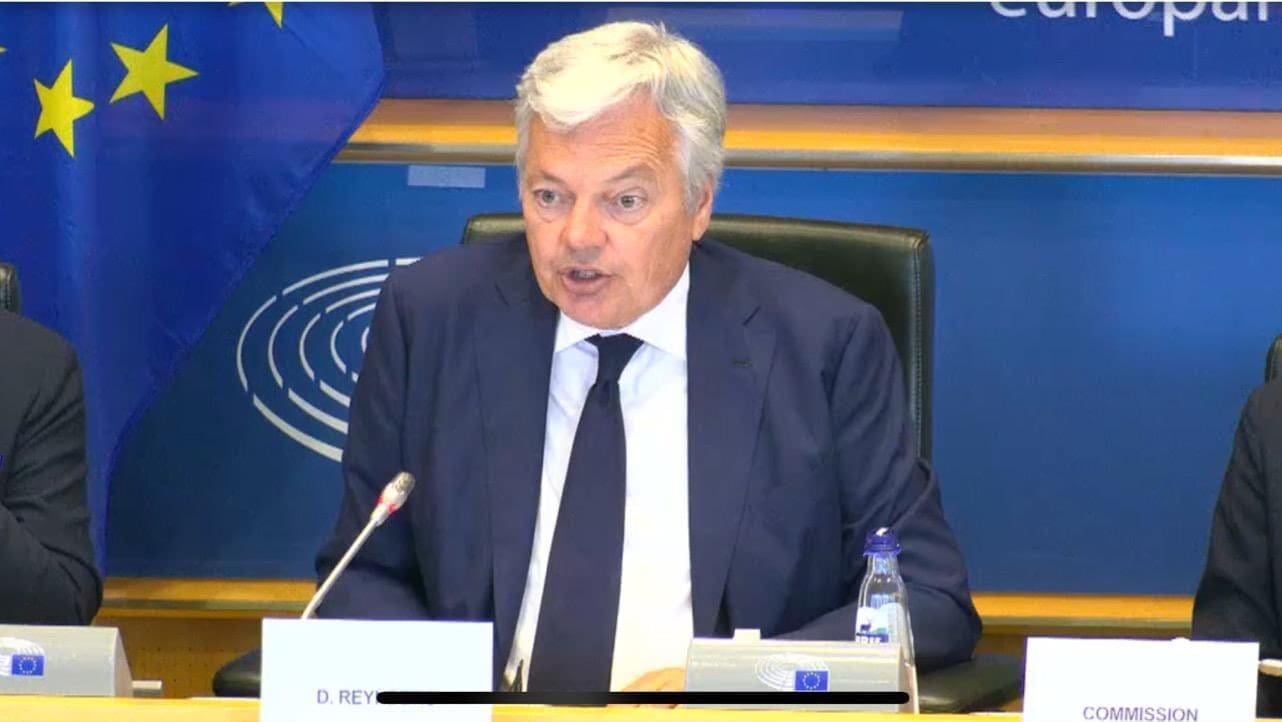
Didier Reynders
Photo: @dreynders on X, 24 July 2024
The European Commission could freeze even more EU funds owed to Hungary because of a law that Brussels claims breaches the EU’s ‘democratic values.’ The Commissioner for Justice, Didier Reynders, told Hungarian daily Népszava that he cannot rule out the suspension of EU cohesion funds due to Hungary’s Sovereignty Protection Act.
The Hungarian parliament passed the law in December to defend the country against undue political interference by foreign entities. An office was created to investigate disinformation campaigns and activities that seek to influence election outcomes. Banned foreign financing can be punished with a prison sentence. The ruling conservative party, Fidesz, deemed it necessary to take such action after revelations surfaced that the left-wing opposition’s 2022 election campaign was massively funded from overseas, mainly through a U.S. non-profit organisation.
While opponents have compared the act to Russia’s foreign agent law, government critics rarely mention that the United States has a similar law, called the Foreign Agents Registration Act, and the European Commission also launched its so-called Defence of Democracy package last year to force groups to disclose their finances to spot foreign political influence.
The EU launched an infringement procedure against Hungary in February, claiming the law violates several EU rules and principles, including the freedom of expression, the freedom of association, the electoral rights of citizens, as well as the ‘democratic values’ of the EU. The procedure could lead to the withholding of EU funds.
In its annual Rule of Law Report, released on Wednesday, the Commission cited “independent media outlets”—i.e., left-wing anti-government publications—warning that the new law is “capable of severely restricting the freedom of the press.” The report, which assesses the situation in all twenty-seven EU member states, singles out the sovereigntist, EU-critical governments of Hungary and Slovakia, while praising Poland’s Europhile leftist-liberal cabinet, making no mention of the Warsaw government’s purge of its conservative political opponents.
As we reported, the European Commission also threatened Slovakia’s sovereigntist government with an infringement procedure if Bratislava goes ahead with plans requiring foreign-funded non-governmental organisations to label themselves as such. EU-candidate Georgia has also been harshly criticised by the EU for its foreign interference law—not surprising, given the ruling party’s opposition to migration and gender ideology.
The latest threat against Hungary seems to be another attempt at blackmailing a country that has been a thorn in the EU’s side for many years. It has angered Western liberals and Brussels bureaucrats for its uncompromising conservative stance on issues such as migration, sovereignty, and gender ideology, not to mention its rejection of military aid to Ukraine. Prime Minister Viktor Orbán’s attempts at finding ways for Ukraine and Russia to make peace have resulted in a backlash, with Eurocrats vowing to boycott the EU Council’s current Hungarian presidency.
The Commission has been withholding tens of billions of euros worth of funds from Hungary, citing concerns relating to judicial independence, public procurement, conflict of interest, the fight against corruption, academic freedom, the right to asylum, and Hungary’s child-protection law, which heavily restricts the ‘promotion’ of homosexuality and gender transition in schools and media. The EU recently imposed a hefty fine on Hungary for protecting the EU’s external borders. The latest threat, therefore, by Didier Reynders, is not at all surprising.
On Friday, July 26th, Gergely Gulyás, Hungarian Minister of the Prime Minister’s Office, said the government is in negotiations with Brussels about the matter, and if they don’t come to an agreement, the issue will be taken to court. If a court decision rules against Hungary, the government would comply, as it has always done in such cases, he added.
